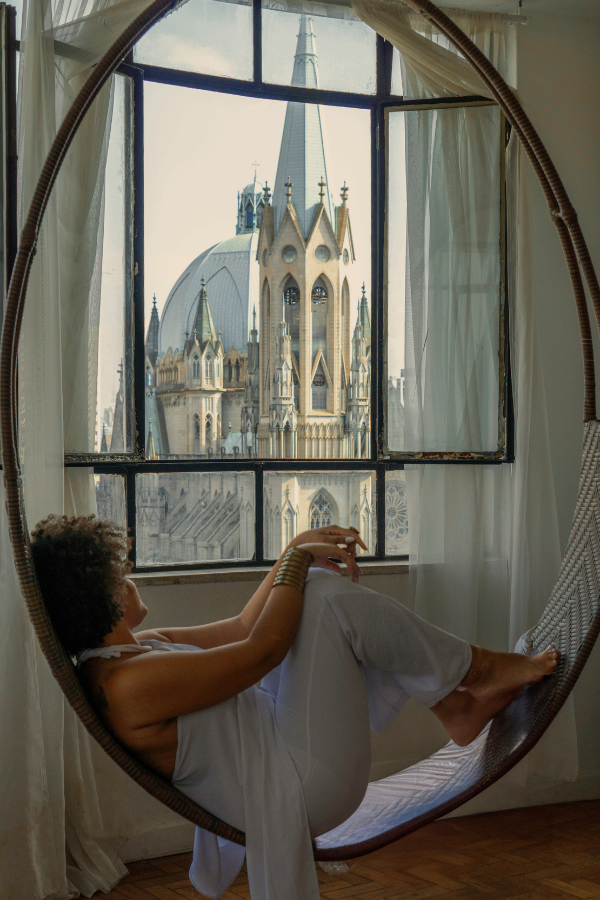

Boredom as Self-Care: Why Doing Nothing Might Be Exactly What You Need
Summary
Boredom is often misunderstood as a negative state, but it can actually be a powerful tool for creativity, productivity, and mental well-being. By embracing moments of intentional downtime, you allow your brain to rest, refocus, and spark new ideas. So, reframe boredom as self-care this holiday season!
Reflection Questions
- How often do you let yourself experience boredom without immediately reaching for your phone or another distraction?
- What beliefs about productivity or success might be stopping you from fully embracing rest and downtime?
- Can you think of a time when being idle led to an unexpected breakthrough or creative idea?
Journal Prompt
Reflect on a time when boredom led to a creative breakthrough or moment of clarity. How did you feel before, during, and after that experience? What steps can you take this week to create space for intentional boredom?
We have all heard the old adage “only boring people get bored,” but allowing yourself to experience this uncomfortable feeling might actually result in major personal growth and creative solutions at work. As Bryan Robinson, Ph.D., explains in this article for Forbes, replacing the rush to “do” with intentional moments to simply “be” can make us more resilient, creative, and productive over time. By intentionally embracing moments of “il dolce far niente“—the Italian concept of the sweetness of doing nothing—we allow our brains to rest and recharge. But letting yourself feel bored at work and home could be a slippery slope, right? So, the question remains: is boredom good for you, and if so, how? Let’s get into it!
Why We Avoid Boredom Like the Plague


Let’s be real: boredom gets a bad rap. From a young age, we’re taught that being bored is a waste of time, an enemy to productivity, or, worse, a sign of laziness. Our culture constantly pushes the idea that every moment should be filled with something—working, improving, creating, or even just scrolling.
This mindset can feel especially intense for creative women, where every spare second might seem like an opportunity to brainstorm a new idea, tackle a project, or plan the next big thing. But in reality, this pressure to stay perpetually “productive” can leave us feeling drained, stuck, and less creative than ever.
Hustle Culture Brands Boredom as a “Luxury”
For women who juggle businesses, families, and artistic passions, boredom often feels like a luxury they can’t afford—or worse, a guilty indulgence. Hustle culture tells us that slowing down means falling behind. If you’re not busy every second, are you even trying hard enough?
This relentless pace creates a cycle of guilt that makes it nearly impossible to embrace stillness. But the truth is, slowing down doesn’t mean failing; it means giving yourself space to rest, recharge, and reconnect with what truly matters. Letting go of that guilt is the first step to reclaiming boredom as a tool for your well-being.
Actionable Tip
Start a boredom journal. Each time you notice yourself being idle, jot it down. Reflect on what happens in those moments—did you feel calm? Did a new idea pop into your head? Noticing and embracing these moments is the first step to appreciating their value.
What Does the Science Say About the Benefits of Boredom?


Some of history’s most celebrated creatives credit boredom for their success. Agatha Christie famously said her best ideas came while washing the dishes, and Albert Einstein was known to take long, idle walks to mull over his theories.
Science backs what many creatives have instinctively felt: boredom isn’t just a pause; it’s a gateway to brilliance. Multiple studies have shown that boredom allows your brain to slip into “mind-wandering mode,” a state essential for creative thinking, problem-solving, and emotional regulation. In an article for the Mayo Clinic, psychiatrist Ashok Seshadri, M.D backs this up.
He argues that boredom creates opportunities for self-reflection, creativity, and problem-solving by giving the brain a chance to rest and enter its default mode network. In this mode, the brain makes unexpected connections between ideas, often leading to breakthroughs. It’s no coincidence that some of our best ideas come in the shower, while driving, or during other mundane tasks when the mind is free to roam.
Is Being Bored Good When You’re at Work?
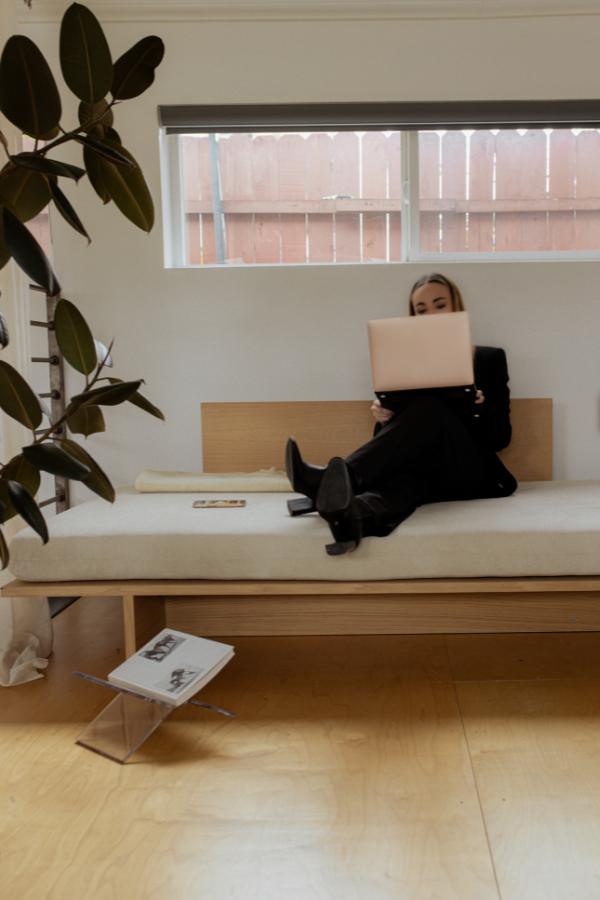

Boredom isn’t just beneficial at home, either. It can help you make breakthroughs at work. In their Harvard Business Review article, Alyson Meister and Aksinia Stavskaya revealed boredom at work, while often perceived negatively, can be used as a tool for self-reflection, creativity, and personal growth. You just have to make sure that if you are feeling bored, you manage those uncomfortable feelings constructively.
Meister and Stavskaya emphasize the importance of embracing “mindful boredom” as a deliberate pause from hyperconnectivity, allowing space for creativity and meaningful reflection to emerge. Rather than avoiding boredom, Meister and Stavskaya advocate for leveraging it as a means of cultivating adaptability and leading a more fulfilling professional life.
Fuel your creative fire & be a part of a supportive community that values how you love to live.
subscribe to our newsletter
*please check your Spam folder for the latest DesignDash Magazine issue immediately after subscription
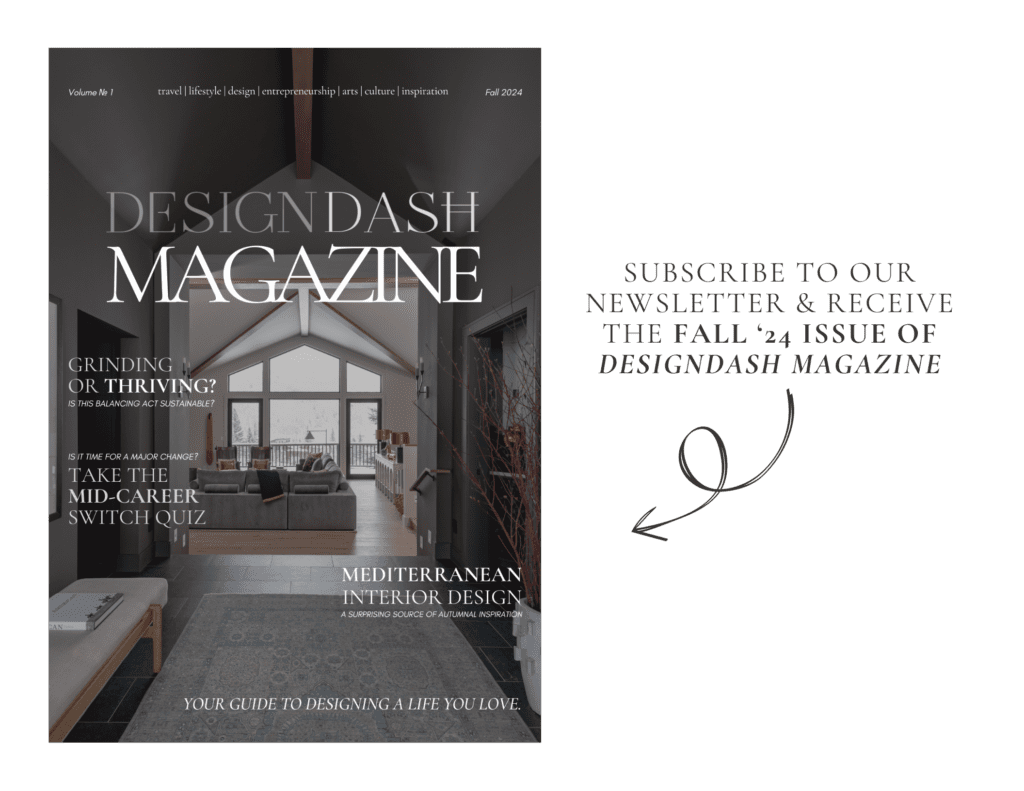

Here’s Why You Should Let Yourself Experience Boredom
For women balancing creative businesses and family responsibilities, the stakes of constant productivity can be especially high. You’re not just creating beautiful things—you’re solving problems, meeting deadlines, and managing a million tiny details.
This constant output can leave your brain too tired to innovate or reflect. It can also take a toll on your mental health. Embracing intentional downtime can feel counterintuitive, but it’s during these “nothing moments” that your brain has the chance to reset, refocus, and refuel your creativity.
Actionable Tip
Schedule 15 minutes of intentional “nothing time” daily. No phone, no work, no multitasking. Just you and some quiet space to let your mind wander.
Redefining Productivity and Self-Care


When we think of productivity, we often picture checklists, spreadsheets, and endless hours of effort. But sometimes, the most productive thing you can do is…nothing. Boredom is widely misunderstood, but it’s the negative space we need in life.
Think of boredom as the pause between musical notes—it’s what makes the melody meaningful. By stepping away from the grind, you give your mind the chance to generate fresh ideas and solve problems more effectively. True productivity isn’t about being busy; it’s about creating something meaningful. And as we all know, if you perpetuate a vicious cycle of constant work, you’ll eventually burn out, anyway.
Self-care doesn’t have to be elaborate or planned. Sometimes, it’s simply giving yourself permission to sit still and do nothing. Rest is productive because it ensures you have the energy and clarity to show up fully for your work and loved ones. Boredom isn’t slacking—it’s a sustainable way to balance the demands of life and creativity.
The Key to Benefitting from Boredom Lies in Embracing the Philosophy of Doing Less
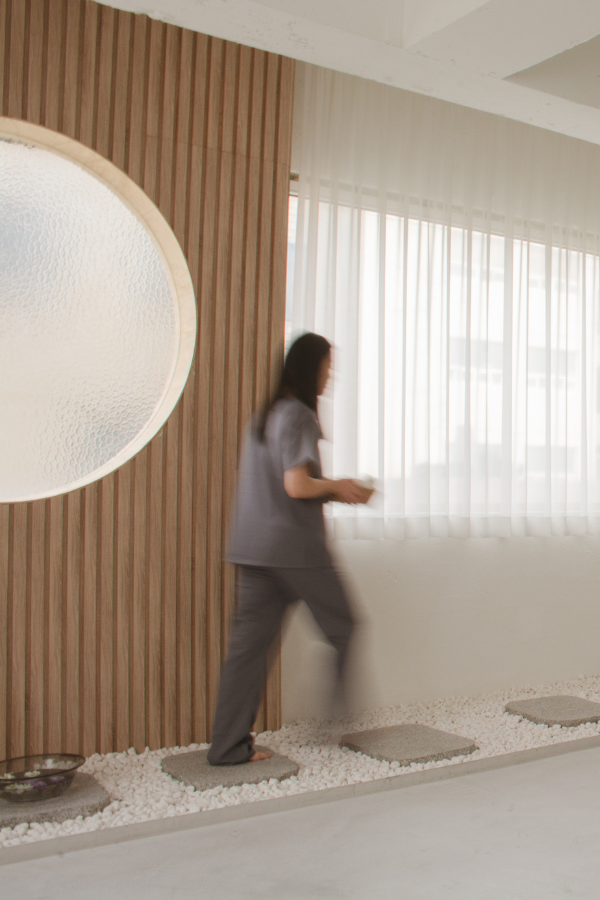

Reframing boredom as a gift requires a shift in perspective. Instead of seeing it as wasted time, recognize it as a chance to reconnect with what matters most—creativity, family, and personal growth. When you let go of the pressure to fill every moment in your entire life with something “productive,” you create space for what really nourishes you. It’s about quality over quantity in both work and life.
Slowing down also lets you align with your deeper values. Boredom reminds us that we’re human, not machines. It connects us to our creativity, our loved ones, and our inner selves. By doing less, you gain more—more clarity, more joy, and more balance.
How to Make Space for Boredom (Without Adding Stress)
It might feel impossible to let boredom slip into a packed schedule, but even small tweaks can make a big difference. Start by setting boundaries—say no to unnecessary tasks, delegate what you can, and carve out time for yourself. Simplify your schedule by focusing only on what truly matters. Sometimes, finding boredom is as easy as pausing during micro-moments like waiting in line or sipping coffee.
For creative women, these pauses can be magical. Let yourself doodle on scrap paper, daydream while sitting in a beautiful space, or simply sit still and breathe. By embracing these small moments, you’ll find that boredom doesn’t add stress—it removes it, creating a sense of balance and calm.
Actionable Tip
Block off one weekend morning or evening as “unstructured time” for the whole family—modeling rest for kids or partners, too. If you feel restless, go for a walk or give yourself a thought prompt.
Final Thoughts: Embracing Boredom Instead of Banishing It
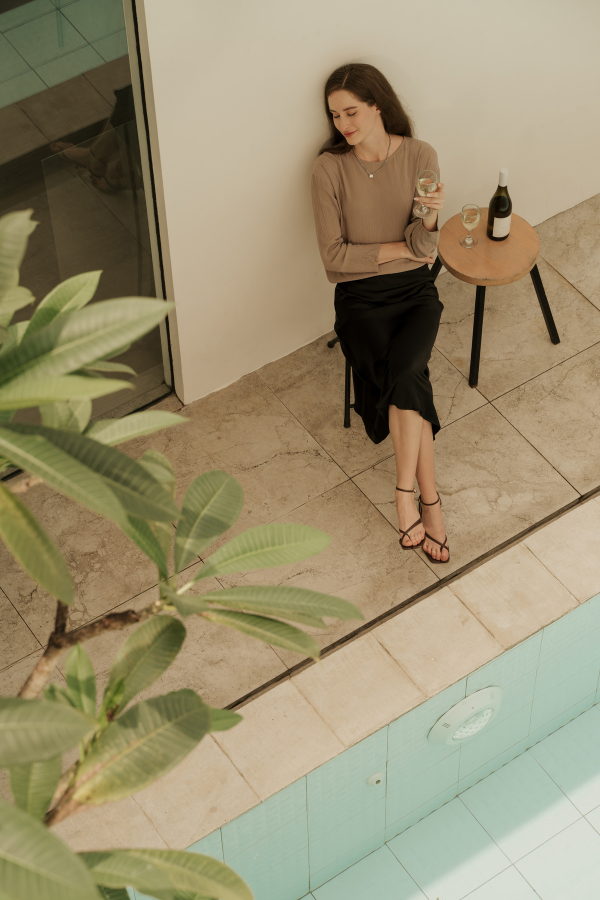

Boredom isn’t a waste of time; it’s a necessary reset for restoring your energy, sparking your creativity, and reconnecting with what truly matters. By giving yourself permission to slow down, you’re not just surviving—you’re creating the space to thrive.
You deserve rest. You deserve moments of stillness and peace. Embracing boredom might feel unfamiliar at first, but it’s an act of self-care that will pay off in countless ways. Why not start now? Try carving out a little intentional downtime and see where it takes you.
And if you do, we’d love to hear how it goes—share your experiences in the comments below so we can start a conversation.
Sources Cited in This Article
- Robinson, Bryan. “Why Neuroscientists Say, ‘Boredom Is Good For Your Brain’s Health.’” Forbes, 2 Sep. 2020, updated 14 Apr. 2022.
- Mayo Clinic Health System. “Boost Your Brain with Boredom.” Published at mayoclinichealthsystem.org.
- Meister, Alyson, and Stavskaya, Aksinia. “The Benefits of Being Bored at Work.” Harvard Business Review, 4 July 2023.








